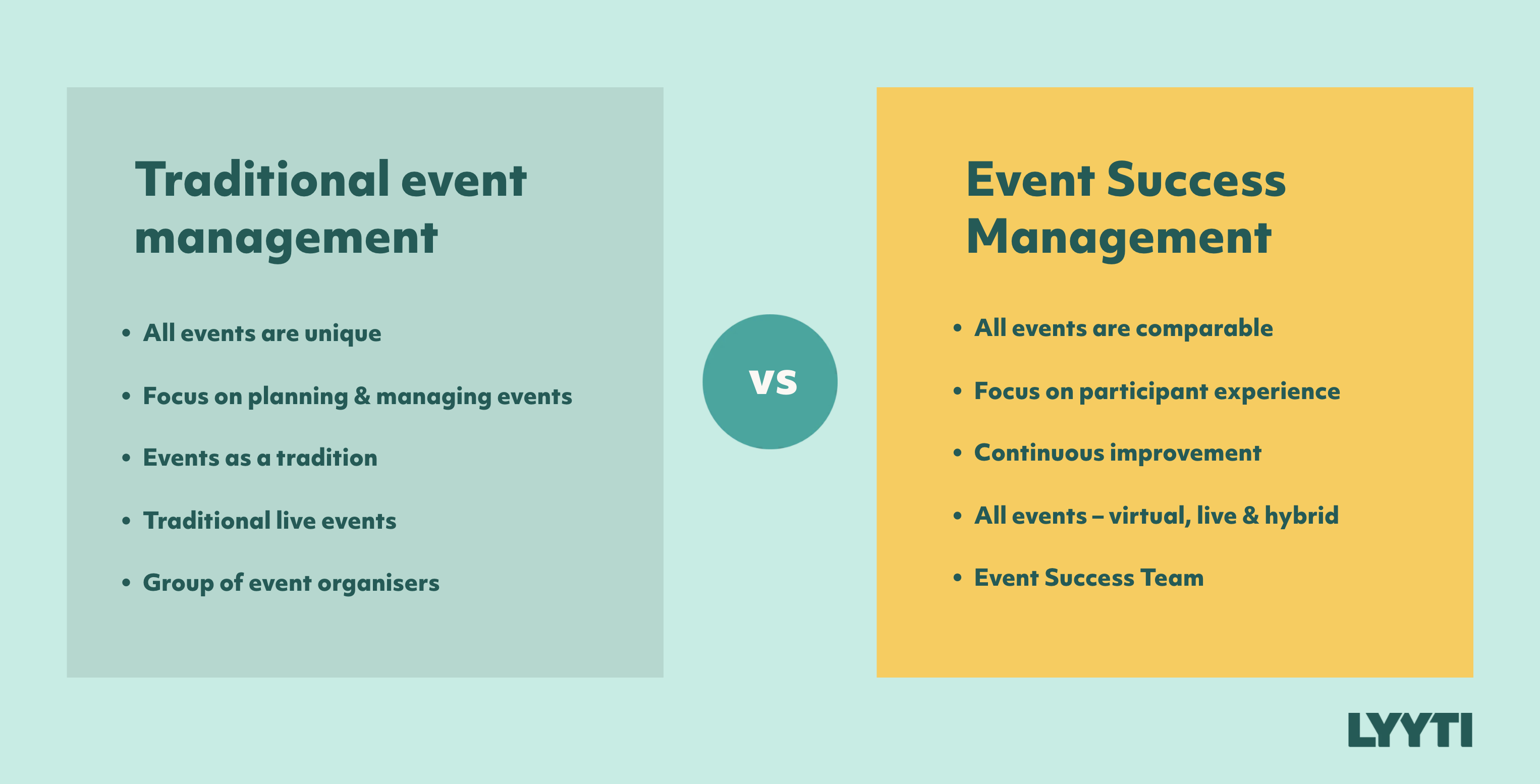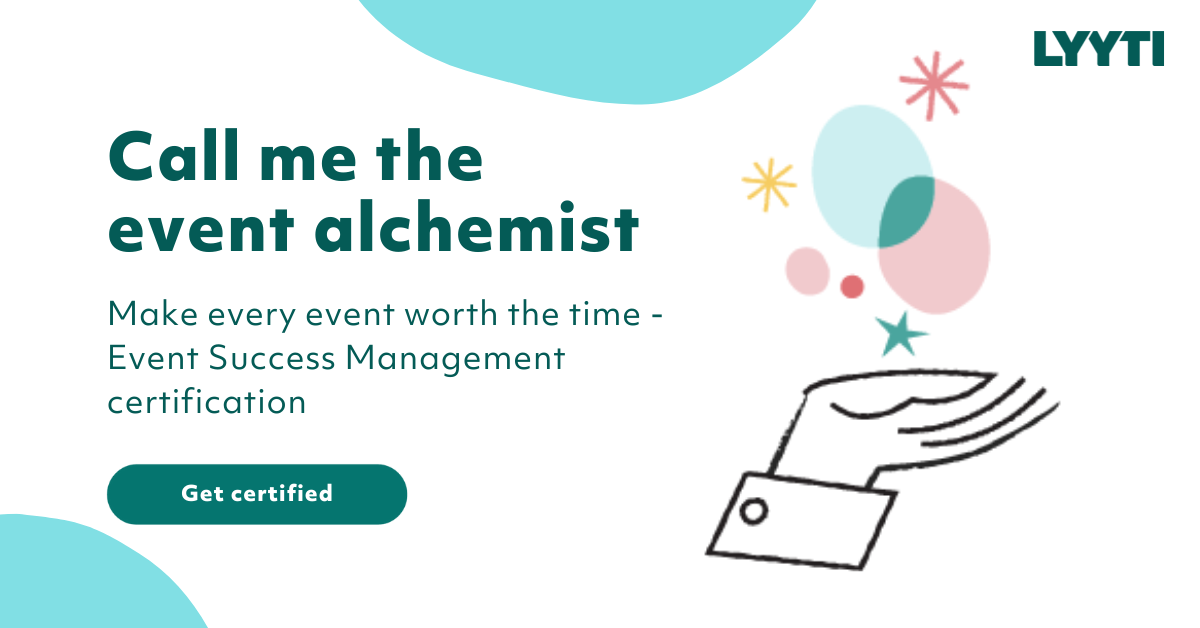Whatever your product, events are a reliable way to get potential customers focused on experiencing it and also build your brand. Whether the event is live, online or hybrid, the purpose of the event is to deliver your message directly, whilst for those attending it’s to have a positive experience. That could consist of anything from improving their knowledge in their work field to the networking opportunities the event provides.
When you think of the B2B event industry, always keep to the forefront of your mind that events give you a valuable opportunity to build relationships with your customers directly.
B2B event marketing strategy
Knowing what kind of event would best suit your situation, and how to go about organising it may not be all that obvious. The first place to start may be the Ultimate Guide to Successful Events, but after checking that it’s time to consider your strategy.
What are your event goals and how will you measure your success? Then, how can you make your event stand out so that not only does your audience want to attend, they leave happy that they did so?
Let’s go through some of the most obvious options for a B2B event:
A product launch
You have something new to showcase. What better way than an event?
A user conference
You gather your customers together to share information in a branded B2B event.
A seminar
One of your in-house experts helps teach the audience about your product, normally in a detailed way that helps them use advanced features.
A networking event
This gets people with a common business interest together in a venue or a virtual event space so they can all connect.
Each of these has pros as to how it can help your business. Identifying which is the appropriate choice for you is the first step. Making it memorable and useful, so the attendees think their time was well spent is perhaps the most important thing.
New approaches in B2B event marketing
You shouldn’t restrict yourself to how things have always been done though. Future events could see us all attending a photorealistic VR venue and considering it as normal as attending a live event has been up until now.
There’s no way to know for certain what will resonate with your target audience. What about if you were to have snappy micro-events all held on phones? That may sound horrendous to you but it could be appealing to, for example, a young professional audience who can’t recall a time before smartphones.
Some other ideas that may be a little bit blue sky right now:
- Instant online events that roll out on-demand as soon as a set number of registrations are reached.
- Attendees define the event content. An open registration event where attendees nominate and then vote on what content they want to see. The most popular subjects are the ones then covered.
- A live event that you don’t attend in person! Logistics can be a challenge sometimes, but perhaps you could organise the venue from afar. Your audience can benefit from in-person networking whilst you deliver the event content remotely to them all as a group directly to the venue.
As interesting as they may be for some point in the future, we’ve identified three ideas we think you should consider right now.
Idea 1 - Event Success Management
Shake up your whole approach to events by implementing the Event Success Management methodology. This turns the traditional thinking behind B2B event management on its head by linking together all your events, even if you thought they were unconnected.
This then allows you to comparatively rank them using Experience Value Score and embark on a process of continuous improvement. It’s an idea and strategy to create better B2B events that deliver improved results.

Idea 2 - Customer education
Helping your current and potential customers by providing them with useful information about a subject related to their field of work. For those already partnering with you, this is a form of nurturing to increase their lifetime value to your business.
The purpose of the event is to help attendees learn, creating a positive association for your brand. In this way, it differs from many more traditional events which have a more direct sales goal.
However, even though it may not be explicit, hosting an education event like this can lead to upselling or cross-selling opportunities. Especially if your topic has been carefully chosen with that in mind. The important thing here is to remember this isn’t a sales pitch. It’s about education first and foremost.
Idea 3 - Embrace hybrid events
The pandemic has profoundly affected the B2B event marketing industry with online events dominating for a time. As things start to reopen, live events are beginning to take place more and more but why choose when you can have the best of both worlds?
Hybrid events take place live and online simultaneously, although as a B2B marketer it’s vital you ensure the experience is equally satisfying for both. There’s a real challenge there, even if an event tool like Lyyti can help take some of the strain out of the process.
Organising a hybrid event that runs successfully means taking advantage of in-person features for those at the venue and online ones for those attending remotely. For example, you could create separate online networking rooms to which segments of your audience are invited so they’ll be sharing the space with peers.
Conclusions
Whatever type of event marketing you decide to implement, remember you should start by checking through the Ultimate Guide to Successful Events. You will also benefit from our All-in-one Guide to Engaging Event Marketing which details individual event marketing steps. Don’t be afraid to innovate and try things as the B2B events space is always evolving and your audience may appreciate the novel approach.
Remember if you need help along the way, Lyyti is ready to support you. Book your demo now to find out how.
Hero photo by Kristopher Roller on Unsplash









